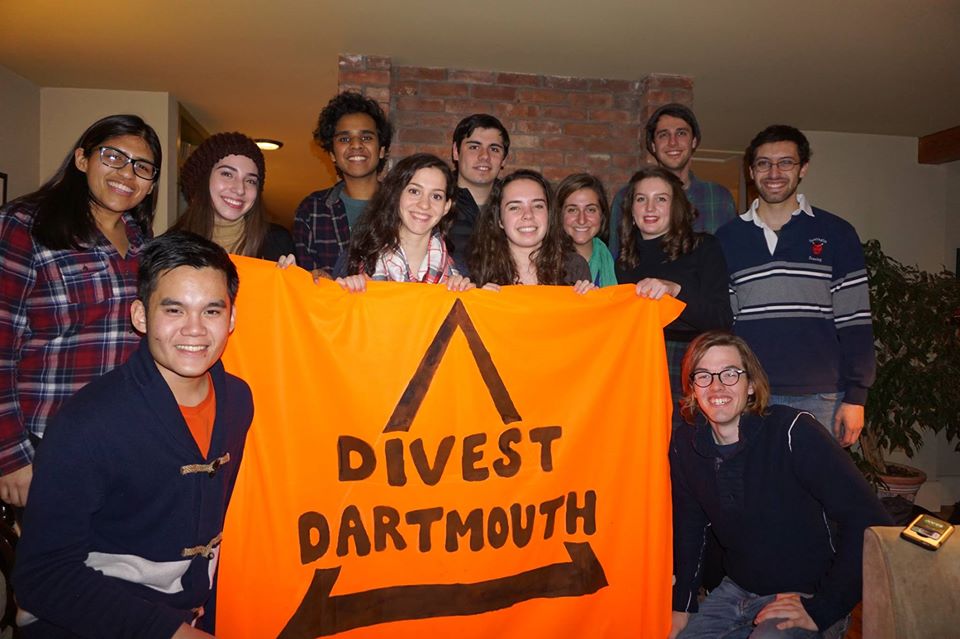Leverage Point #2: The mindset or paradigm out of which the system — its goals, structure, rules, delays, parameters — arises.
In 2011, widespread protests and peaceful civil disobedience against the proposed Keystone XL pipeline sprouted all over the United States. In 2015, President Obama formally vetoed the project.
In 2012, the fossil fuel divestment movement began to take hold. By 2015, more than 3.4 trillion dollars had been divested from the world’s top 200 coal, oil, and gas companies, and there were divestment campaigns at more than 1,000 institutions worldwide.
Many of the climate organizers I interviewed mentioned either or both of these two campaigns when asked to give an example of a successful climate change policy or campaign.
In conversation with people over the past few years, I’ve often heard that the successes of these two campaigns were historic, and, most of all, completely unexpected. Most organizers didn’t believe the divestment movement could become so successful, or that there was any possibility the Keystone XL pipeline could be stopped.
Why do we tend to discount ourselves within the climate movement? I mentioned earlier that celebration within social justice movements is sometimes critical to their survival. Why don’t we have faith in our ability to succeed?
People oftentimes say that working on climate change is a lofty goal. We are told that there is no way the entire planet can cooperate on this problem. We are told to “be realistic”. We are told that we’ve passed the thresholds, that it’s too late, too hard, too complex, too idealistic, too impractical, too big. This problem is just too big, and we, as young people, as inexperienced people, as new people, as students, just aren’t equipped to solve it.
Working on climate change is hard! It’s so hard. We know the magnitude of this problem – we know it all too well.
What does it look like to feel the gravity of what we are facing, but to hold that weight simultaneously with fervent, deep hope?
When I was in Ottawa, I interviewed Member of Parliament for Saanich-Gulf Islands (and Green Party Leader) Elizabeth May. She is a stalwart defender of environmental rights, and has dedicated her life toward fighting for aggressive climate change policies. As an activist and now a policymaker, she has been involved with environmental issues for decades. When I asked her to provide an example of a time where she noticed an imbalance of power, she said, “I think it’s a generalized failing of grassroots movements to miss, or to underestimate our own power. So, if you underestimate your own power, you’re constantly hedging your bets against your own success, and downgrading what your goals are, because you don’t think the real goal is possible. The environmental movement is doing this right now, by the way. “
I think she is right. Time and time again, we underestimate ourselves. We think it’s impossible to get presidential candidates to talk about fossil fuel industry influence, that it’s impossible for renewables to become cheap enough, that it’s impossible to have 400,000 people in the streets of New York City demanding climate justice. Yet, time and time again, we see this happening. We surpass even our own expectations, with flying colours.
There’s no doubt that, if we sell ourselves short, it is more likely to become a self-fulfilling prophecy. We need to dream big, but more importantly, to believe in the feasibility of these dreams.
I know this is hard. And I recognize some irony: I have a very hard time finding this faith myself. But, I think it’s important to keep this perspective in mind.
One of Dana Meadows’ most powerful Leverage Points has to do with paradigms and our ability to recognize them. Currently, we live in a paradigm that sets us up for failure. We limit ourselves before we even get started. There is a little voice that tells us we cannot accomplish enough – a small voice that fears failure. Or, perhaps, a cynical voice that doubts the general public’s ability to take action on climate change.
Believing in our ability to reach even the loftiest of goals is a paradigm-shifter: it enables us to reach even higher than others – and we – expect is possible.
We can accomplish so much more than we think we are capable of.

